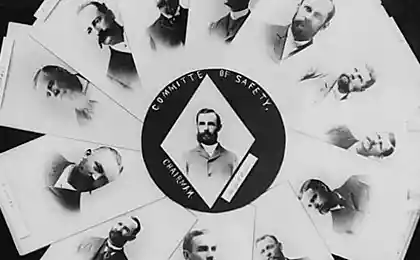176
Should I defend my views publicly or should I keep my thoughts to myself?

Every person, regardless of profession and level of education, from time to time faces a dilemma: is it worth sharing your views with a wide audience or is it better to keep ideas in your personal space? We live in an era of fast communication, where all forms of self-expression are possible, from short messages on social networks to full-length speeches on public platforms. But for all the appeal of free speech, there’s a downside: Is our minds ready for full feedback? It is easy to think oneself wise when one’s thoughts are not tested by society. However, public debate can be discouraging: a brilliant idea can devalue the interlocutor, unable or unwilling to delve deeply into the essence of the conversation.
A brief historical context
In different historical periods, public discussion has been encouraged and suppressed. For example, in ancient Greece, disputes were considered part of the civic virtue: people gathered in squares (agoras) and discussed political, philosophical and cultural issues. But there were times when radical new ideas led to persecution, when many thinkers chose to hide or even disguise their ideas. A similar situation was faced, for example, by Galileo Galilei, who had to choose cautious language to avoid conflict with influential religious circles. The question of whether to speak in public or not has never lost its relevance and remains open to this day.

Advantages of Public Advocacy
Some experts in the field of social psychology point out that the public expression of ideas can strengthen personal growth and form a more confident identity. A person who is not afraid to speak in front of a large audience will inevitably get:
- Argumentation experience. To correctly present the idea, it is necessary to structure it, prepare evidence and possible counterarguments in advance. It trains logic and communication skills.
- Feedback. Interaction with the audience gives you an understanding of how your point of view is perceived. Argumentation may require refinement or specification that is difficult to see without dialogue.
- A chance to spread useful ideas. When information has the potential to improve people’s lives or shed light on important social issues, public speaking becomes a tool for progress.
Psychological subtleties: when words can be dangerous
However, the speaker should also take into account the downside of public expression. Often faced with criticism or passive aggression, a person risks falling into a state of stress. It is important to be aware of your own motivation and psychological readiness for negative reactions.
The most vulnerable in such situations are people for whom the approval of the environment becomes decisive. Without proper recognition or misunderstanding, they experience internal discomfort and doubts about the correctness of even the most carefully grounded ideas. In addition, if the interlocutor is “empty” in the sense that he does not try to understand the topic deeply, a special kind of frustration arises. Then a brilliant thought can remain “unheard”, and the source of this thought can feel a loss of enthusiasm.
When you should keep your thoughts to yourself
Sometimes, unspoken ideas, especially those that require more work, are more effective if you delay public disclosure. Internal reflection and “intellectual incubation” allow:
- Deepen understanding. Some projects and ideas need more detailed research before being made public.
- Keep it unique. It happens that as a result of premature presentation, ideas are intercepted by competitors or colleagues.
- Strengthen mental resilience. Prepare yourself morally for discussions if difficult or unpleasant dialogue is foreseen.

Factors influencing choice
So the decision to speak or to remain silent depends on several important factors:
- The importance and sensitivity of the topic. If it is a serious scientific discovery or a social issue that requires public awareness, a public statement may be necessary.
- Level of social preparedness. Is your community or potential audience ready to embrace new ideas? Sometimes it is helpful to “set the stage” through informal discussions.
- Psychological resilience. Can you accept criticism and have the resources to engage in constructive dialogue?
- Conflict risks and ethical aspects. If the topic touches on pressing moral or political issues, serious conflicts are possible that will require enormous emotional costs.
Conclusion
To speak or to speak is not an easy choice between cowardice and courage. Sometimes it is silence that contributes to a deeper preparation and formation of a better argument. On the other hand, public advocacy helps broaden horizons, share valuable knowledge, and strengthen communication skills.
Each case is different, and there is no universal recipe that works for everyone. But one thing is clear: if you are striving for self-realization and intellectual growth, avoiding testing your ideas for strength means voluntarily depriving yourself of the opportunity to reach a new level of understanding. At the same time, one should not forget about the degree of sensitivity of a potential interlocutor: it can be more useful to transfer the discussion to a narrow circle of like-minded people than to try to convey complex concepts to an audience not ready for their adoption.
Wisdom, after all, is not only measured by speaking beautifully or keeping silent: it is the ability to choose the right format, time and place for your thoughts. Publicity can give ideas wings, but unpreparedness and lack of dialogue on the part of opponents can negate all efforts. True maturity is manifested in a sober assessment of the situation: when it is necessary to meaningfully defend views and expand discourse - to use open dialogue, and when it is better to apply caution, combined with deep self-knowledge and elaboration of arguments.
It is this conscious approach that helps not only to preserve one’s own mental harmony, but also to contribute to the collective development of ideas. Therefore, before making a decision to speak or to remain silent, one should ask oneself the main question: “Do I want to influence the world and am I ready for a response?” If the answer is yes, don’t be afraid to come out and share your unique look. If you realize that the time has not yet come, let the idea ripen in silence to one day sound even more convincing.
Is it to be or not to be? How to Answer the Hamlet Question
7 Signs Negativity Is Poisoning Your Life – and How to Deal With It























